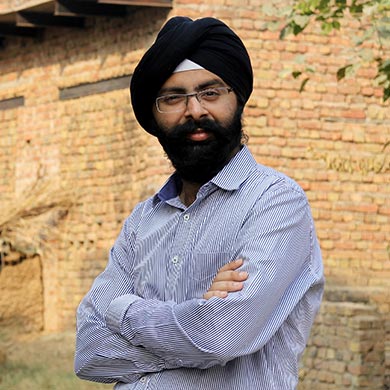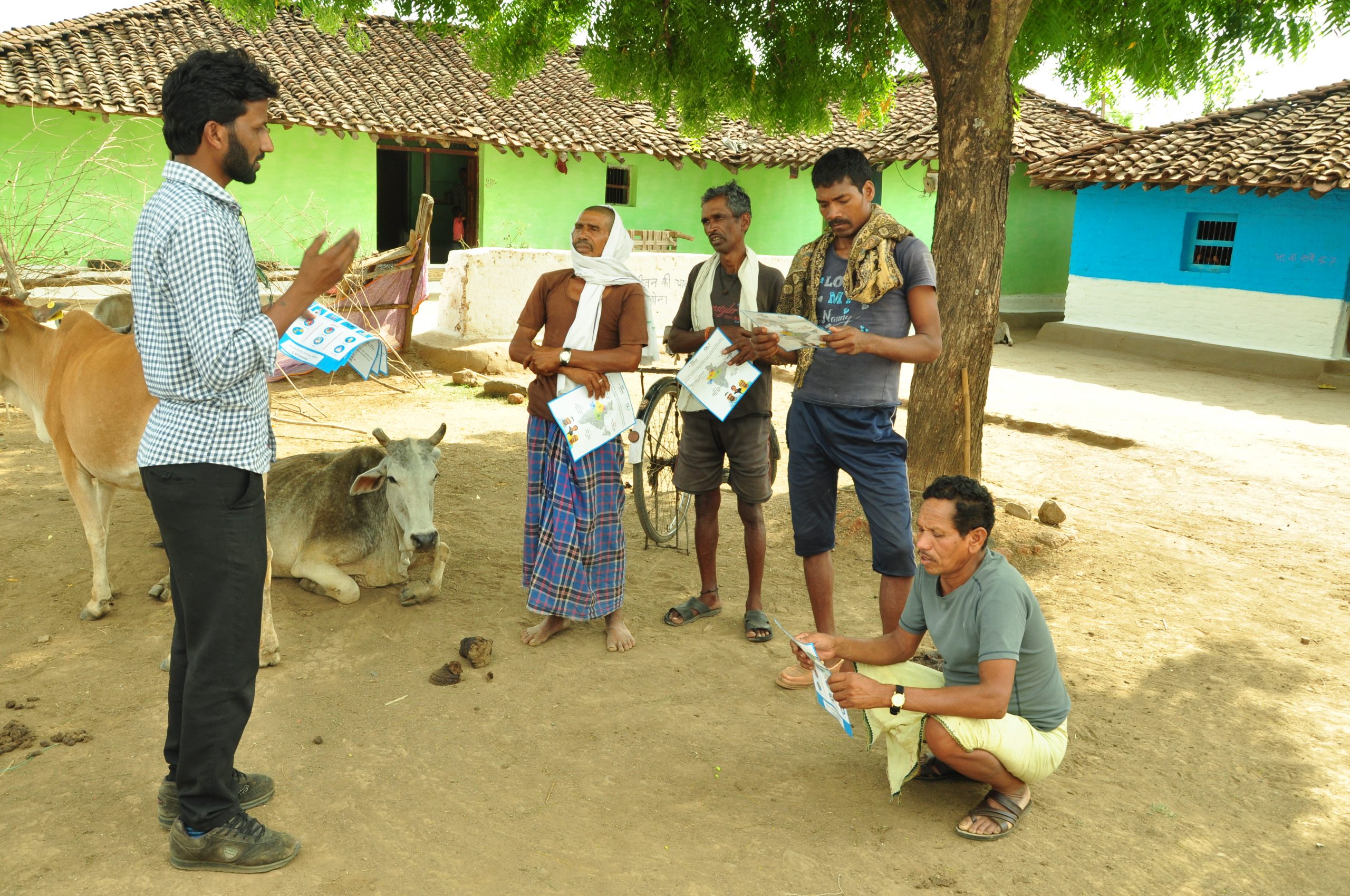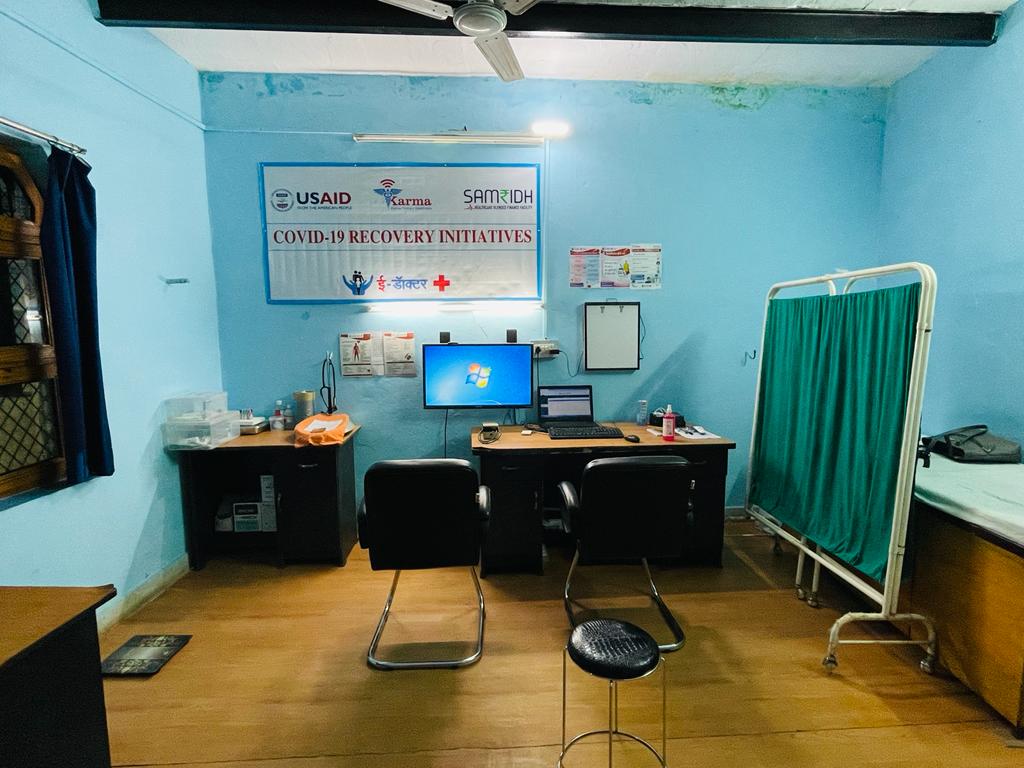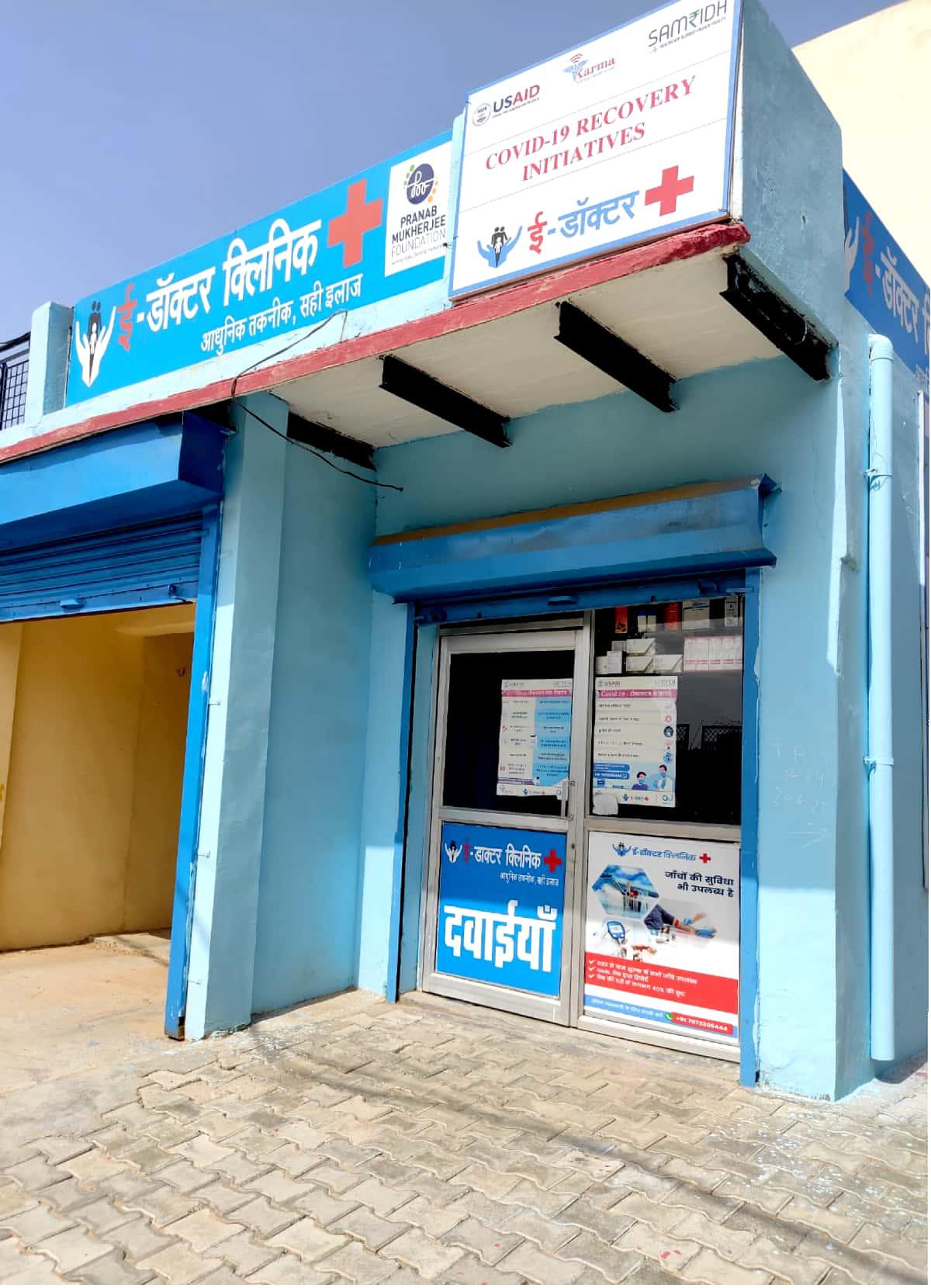Karma Primary Healthcare
Tech-enabled primary healthcare solution


CURRENT IMPACT
As on October 2022
46,000+
individuals reached through tele-calling
33,000+
e-clinic consultations conducted

Geographical Focus
- Rajasthan, Madhya Pradesh, and Haryana

Potential Impact
- Reach
172,000
lives

Jagdeep Gambhir Chief Executive Officer, Karma Primary Healthcare

During COVID-19, we saw fewer footfalls at our e-Doctor clinics because of lockdown-related disruptions and widespread fear of contracting the virus at healthcare facilities. At this critical time, USAID’s SAMRIDH initiative provided us with financial assistance to cover operational expenses and develop a complete continuum of COVID-19 care and awareness, which was not available earlier. Our revenue stream was stabilized, and we were able to navigate through a period of financial uncertainty while still offering affordable services to our target populations. Moreover, we have been able to leverage the assistance from SAMRIDH to secure additional funds from international investors, donors, philanthropies, and multilateral agencies. This has been crucial in ensuring long-term sustainability and expanding our reach in more geographies.

Samridh support
SAMRIDH is supporting Karma Primary Healthcare to stabilize its revenue stream and unlock additional capital from other international investors, donors, philanthropies, and multilateral agencies. This enabled Karma to expand its services to impact over 150,000 lives in the catchment area of its 25 clinics. Specific services under SAMRIDH support include COVID-19 awareness, distribution of critical medical devices for COVID-19 management, free door-to-door digital consultations to patients, and mental health counseling in tribal and rural areas of Rajasthan, Madhya Pradesh, and Haryana.
80%
Doctors in India are based in urban areas, serving only 28% of the population [1]
70%
Rural Indians seek medical help from untrained healthcare providers [2]
63m
People annually pushed into poverty due to healthcare expenditure [3]
Shortage of doctors and inadequate health infrastructure are long-standing barriers for rural populations in India to access healthcare services. The rapid spread of the COVID-19 pandemic, resulting in the diversion of resources and unavailability of trained doctors, further strained India’s already fragile primary healthcare delivery system. The situation was aggravated by rural populations’ significant hesitation to receive COVID-19 vaccines because of misinformation and mistrust. The primary healthcare needs of these communities need to be met with sustained interventions.



e-Doctor Clinics
Karma is addressing the primary health needs and providing COVID-19 support to vulnerable populations in semi-urban and rural areas through e-Doctor Clinics that are supported by qualified medical professionals, diagnostics, and referral services in underserved areas. It provides access to specialty care like gynecology, pediatrics, internal medicine, and dermatology, which are hard to access in rural areas and are expensive to treat. By combining digital technology and human touch, the e-Doctor clinics deliver a sustainable rural healthcare model. The approach is advancing India’s key healthcare goals by expanding a complete range of primary healthcare services and reducing poor communities’ out-of-pocket health expenses. These clinics offer teleconsultation in accordance with NDHM and GOI guidelines.
Key Stakeholders


